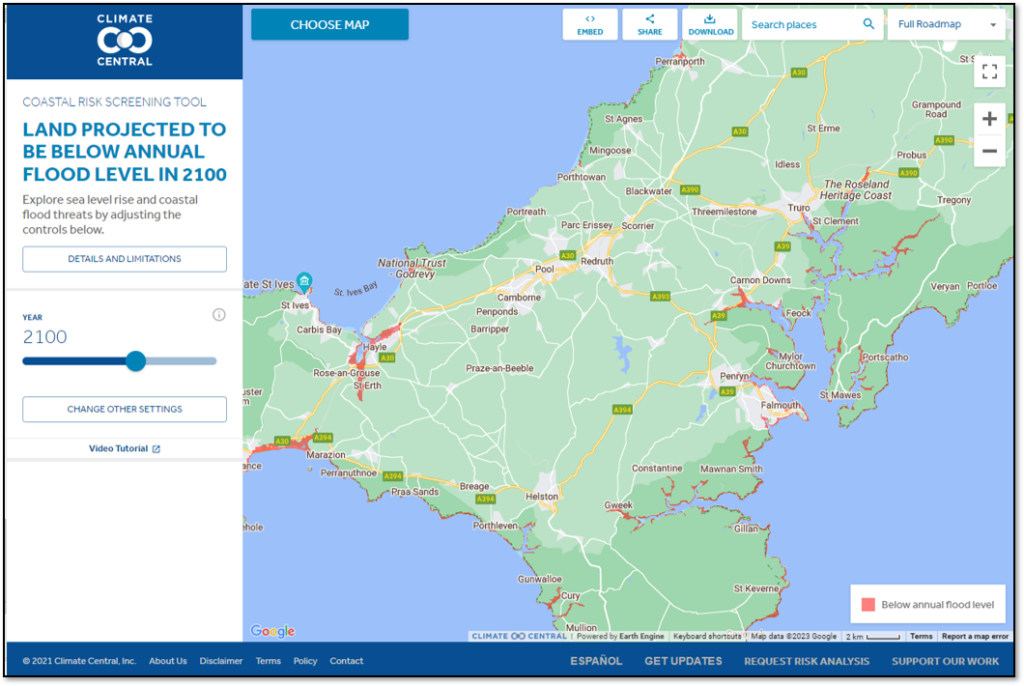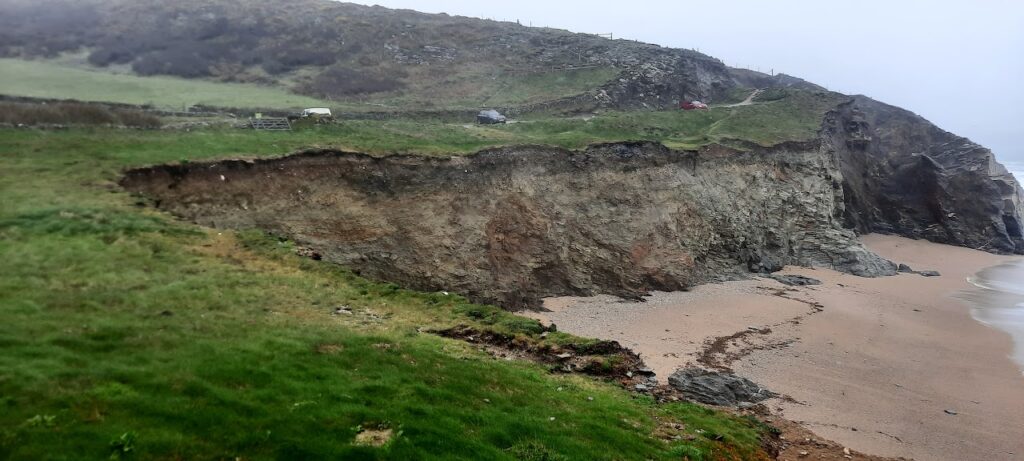Climate change is set to become a practical reality as the developed and developing nation states are falling behind the targets set out in the Paris Accord, to limit greenhouse gas emissions and to limit the rise in global temperature to below 1.5 degrees. As humanity fails to manage greenhouse gas emissions, so we must face the reality of living with the effect of those emissions on our planet, namely the effect of climate change.
Climate change has implications for Cornwall, as it does for regions around the world. Cornwall is subject to various climate change impacts, including changes in temperature, precipitation patterns, extreme weather events and in particular sea level rise.
Official figures published by DEFRA and the Environment Agency projecting and increase in sea levels in Cornwall and the Southwest of 1.5 metres over the next 80 to 100 years. Other, less official figures as published by Extinction Rebellion and other climate protect groups warn against worst case projected figures for sea level rise of between 5 and 8 metres, also citing credible scientific sources and journals as sources (though in the event of clear worst-case scenarios).

Clearly our sea levels are set to rise, by how much is not clear, but certainly the effect on our coastline, and the coastline of Cornwall and the Southwest is likely to be profound. Cornwall’s coastline is characterized by cliffs, beaches, and rocky shores, our vulnerability to coastal erosion is due in part to the following factors:
Sea Level Rise: Rising sea levels, associated with climate change, can exacerbate coastal erosion by increasing the volume and intensity of wave action along the shoreline.
Wave Action: The region is exposed to the powerful waves of the Atlantic Ocean, climate change is projected to lead to the increase in both severity and regularity of the storm events that are already starting to impact on our coastlines. These storm events can cause accelerated erosion.
Geological Features: Cornwall’s cliffs are often composed of soft and easily erodible rocks, such as metasedimentary mudstones (shales). These rocks may be susceptible to the increased erosive forces of wind and waves and the sea level rises.
Weathering and Mass Movement: Rainfall, freeze-thaw cycles, and other weathering processes contribute to the instability of cliffs, leading increase risk of mass slope collapse events such as landslides and rockfalls.
Human Activities: Human activities, including construction near the coastline, mining, and the removal of vegetation, can disrupt natural coastal processes and accelerate erosion. Poorly planned coastal developments can contribute to the vulnerability of the shoreline.

How do we manage the risk of coastal erosion in Cornwall?
The responsibility for the management of our shoreline falls to the local authority, who published a comprehensive Shoreline Management Plan in 2011. This document presents a policy frameworks to address the risk of coastal erosion in the sort (to 2025), intermediate (to 2055) and long term (to 2105) through the following management policy options:
No active intervention (NAI): a decision not to invest in providing or maintaining defences or natural coastline.
Hold the line (HTL): maintain or upgrade the level of protection provided by defences or natural coastline.
Managed realignment (MR): manage the coastal processes to realign the ‘natural’ coastline configuration, either seaward or landward, in order to create a future sustainable shoreline position.
Advance the line (ATL): build new defences seaward of the existing defence line where significant land reclamation is considered.
Regular monitoring of coastal erosion, coupled with effective land-use planning, is crucial for identifying vulnerable areas and implementing measures to protect both natural habitats and human infrastructure. It’s important for local authorities and communities to work together to implement sustainable strategies for managing coastal erosion in Cornwall and other vulnerable areas.
If you have concerns about coastal erosion, coastal vulnerability of the sustainability of a property in a coastal environment, contact Slope Stability Southwest, and speak to an expert.